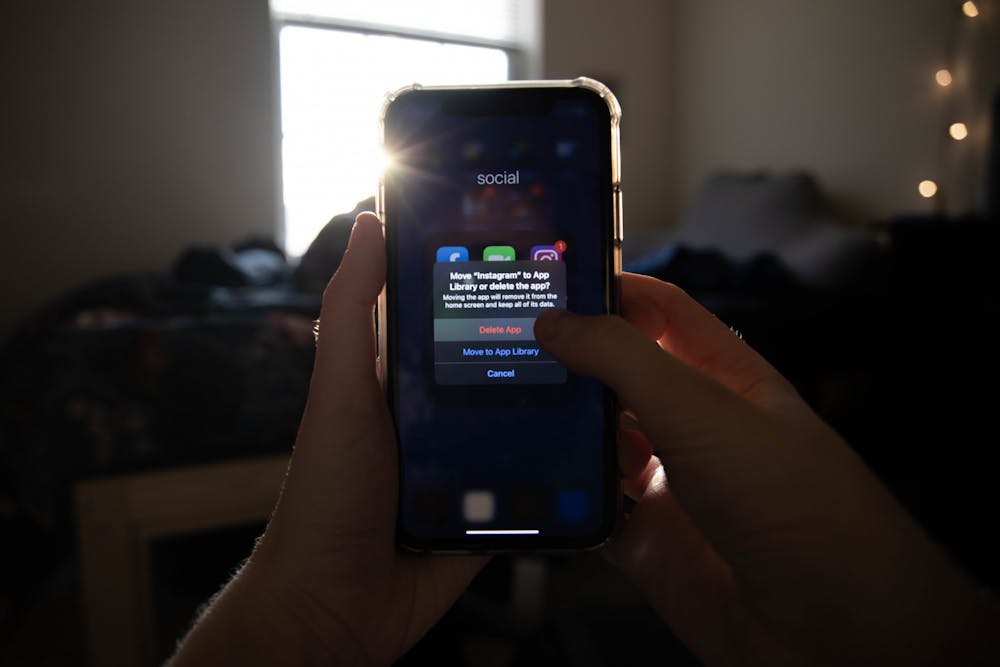I am the digital managing editor at The Daily Tar Heel. A large part of my role is analyzing data to determine how to get and keep you engaged with our content. I use numbers to guide how we deliver the news to you (although numbers never determine what we cover or how we cover it).
Over the weekend, I watched "The Social Dilemma" on Netflix. The documentary features former leaders and product designers at major social platforms such as Facebook, Instagram and Twitter. These are the people who do what I do for the DTH, but in such a way that has forever altered the framework of our society.
The primary focus of the documentary is twofold: one, how technology companies have created a business model that takes an unprecedented amount of user data to sell for profit; and two, how unchecked disinformation campaigns have emboldened partisan divisions globally.
Social media is likened to a drug: these companies have created technology that keeps users engaged and accurately predicts user actions in order to sell ads. This technology operates unregulated across the internet, including on our own website.
The documentary appears to be a call to the major tech companies to adjust their models — to focus less on the profits and more on the discord social media is producing in politics and the disconnect it is creating in human relationships.
However, if you find yourself spending an average of three hours a day on TikTok (like I was during the summer months), then you, too, are victim to these powerful algorithms, which are based on advanced technological capabilities and basic human psychology.
As someone who uses social media every day for work, here are the methods I use to control my screen time:
- Recognize the problem. What do you gain from using your phone? Is it helpful, or is it a time sink?
- Notifications — turn them off. Or at least turn off the notifications for the apps you don’t need constant updates from. A notification is like a dopamine hit, which is what controls our sense of reward — and they know this. That’s why you get them when your friend joins Instagram or likes something on Twitter.
- Delete your apps. Remove apps you just don’t need to have in your pocket. This can be true for what I call guilty pleasure apps, like Words With Friends, or even more practical apps, like Twitter.
- Set limits. Use your phone’s native screen time settings to give you reminders when you’ve been using certain apps for a long time.
- Physical separation. Literally leave the phone somewhere out of reach. If you are working at your desk, put it across the room. If you are meeting with a friend, leave it in your bag. Make sure it isn’t easily accessible.
- Understand the game. Social media is like a game, only with real world consequences. Don’t let yourself be swayed by who’s liked your post or how many followers you have. It is not a reflection of who you are.
My final tip is to recognize something this documentary barely touches on: social media can be really good.





